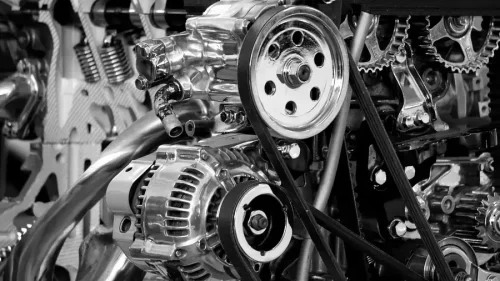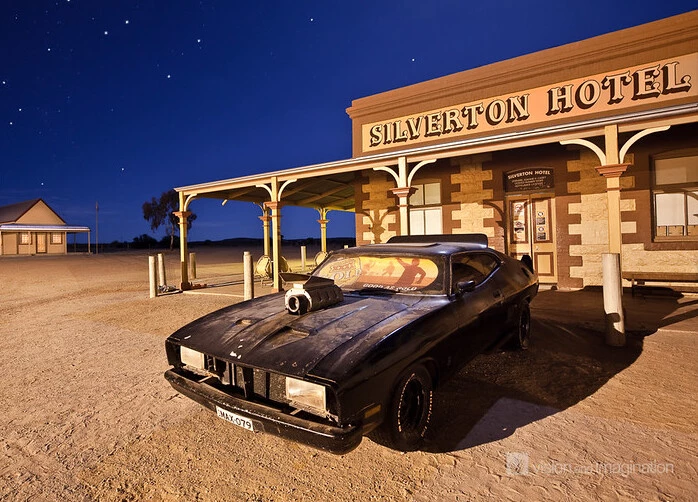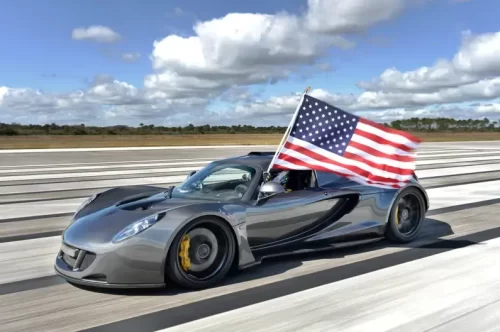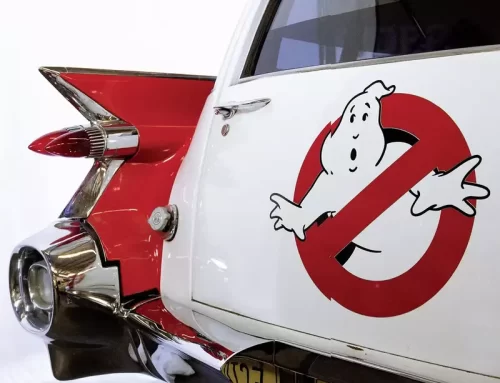Known as the Pursuit Special, This Iconic Car Led Them All
The 1973 Ford XB Falcon GT 351 was already a mean machine
Introducing The Last of the V8 Interceptors
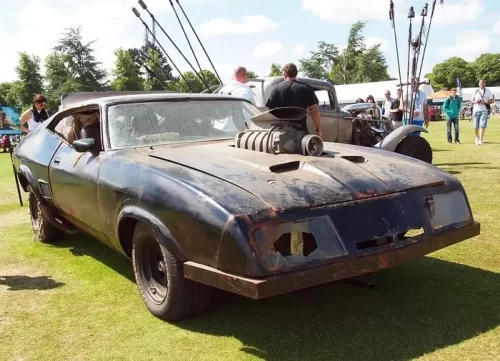
The Mad Max Pursuit Special refers to Max’s famous V8 Interceptor Pursuit Special, a 1973 Ford XB Falcon GT 351. In the story, it is commissioned, at great expense, by the Main Force Patrol’s (MFP) commander, Fifi Macaffee, and Police Commissioner Labatouche. It was assembled by the MFP’s mechanic, Barry, and featured port exhaust pipes and a “blower” supercharger. When Max’s family is murdered by the Toecutter gang, he steals the Pursuit Special from the MFP garage and goes on a vengeful rampage.
In 1976, filmmakers Byron Kennedy and George Miller began preproduction on Mad Max. The vehicle started out as a standard white Cleveland V8, 351 cu. in. dual-overhead cam, 1973 Ford Falcon XB GT Hardtop. The movie’s art director Jon Dowding designed the Interceptor and commissioned Melbourne-based car customizers Graf-X International to modify the GT Falcon.
The main modifications are the black paint scheme, roof and trunk spoilers, wheel arch flares, front-end nose, and air-dam, designed by Arcadipane (marketed as the “Concorde” style). Also, eight individual exhaust side pipes were added (only two of them being functional, others appeared to be working because of the vibrations the first two created). The most famous feature of the car is a Weiand 6-71 supercharger protruding through the hood. The impressive-looking supercharger, in reality, was nonfunctional; functional superchargers are typically driven constantly by the engine and cannot be switched on and off, as portrayed in the original Mad Max film.
In Mad Max 2, the original Weiand blower was removed, (and subsequently lost.) It was replaced with a fully-functional supercharger, connected directly to the engine’s crankshaft pulley. The effect of the blower being engaged or disengaged was created by placing the vehicle on a mobile dolly, and while in motion, the interceptor’s engine was simply turned off to simulate the supercharger being disengaged.
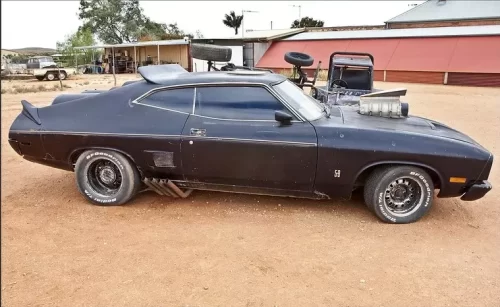
Other modifications in the second movie included changes to the rear wheels and side pipes. The car was cosmetically modified for the new post-apocalyptic setting with the addition of a pair of large cylindrical fuel tanks fitted in the rear, (requiring the back window and trunk lid to be removed.) Its general appearance was given a more used look with a matte-black paint job, vs. the original gloss black. The paint was then scrubbed off to appear rusty. The front end was also modified by removing the air dam. Additionally, a duplicate car was cobbled together to be used for stunts in the film. When the script required it to be destroyed by rolling down an embankment and eventually exploding, the duplicate interceptor was used, leaving the original vehicle intact.
FRASER FAST FACTS
- After Mad Max 1, the Falcon GT was reverted to street-legal, and put up for sale, but found no buyer, so it was dusted off and given a roughneck makeover for Mad Max 2.
- Two massive fuel tanks were added to allow the car to travel greater distances. The trunk lid had to be removed in order to accommodate them. This led to the car losing the rear spoiler. Max also installed a new fuel gauge, indicating the car was now capable of holding over 50 gallons of fuel.
- The front bumper was removed to allow the vehicle to travel off-road with less hindrance.
- The passenger seat was removed, and a custom seat for Max’s dog was installed on the passenger door.
- Max rigged the tanks to explode with a booby trap hidden under the car.
- Max had several weapons hidden within (and even outside) the car.
If you want to create a replica Pursuit Special of your own, bolt in a world-class FRASER remanufactured engine and head to the Thunderdome!
